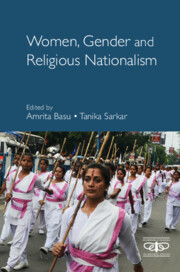
Books are important sources of humanities scholarship. To find books at the Gordon Library:

Ebooks: Many of Gordon Library's books are available digitally, and you can access these via the links in WPI Library Search. For example:

Print books: Print books in the library are organized by call number. When you find a print book in the WPI Library Search, look for the book's call number:

Gordon Library uses the Library of Congress call number system. Call numbers A-N are on the ground floor of the library. Call numbers P-Z are on the 1st floor. (Please note that the main entrance to the library is on the 2nd floor.)
You can check books out at the information services desk on the main floor. Your WPI ID is your library card.
Is there something you need that the WPI library doesn't have? Our Interlibrary Loan service allows WPI students and faculty to request items from other libraries free of charge.
Search in WorldCat to find books available at other libraries:
Catalog of books (and other materials) in libraries worldwide.
The books listed here are just some examples of the books you can find via Gordon Library and represent just a few of the topics you may want to research for this class. You can use WPI Library Search to find many books on a variety of topics.
 Women, Gender and Religious Nationalism
by
This book reflects the changing modalities of Hindu nationalist organizing among women and youth. It provides unique insights into how this immensely powerful political formation has been able to preside over a massive network of grassroots organisations among most segments of Indian society and capture national power. Chapters explore the techniques the RSS, VHP and BJP employ and the messages they convey about masculinity, femininity, and LGBTQ communities, and analyze contrasting forms of women's activism in defending and opposing Hindu nationalism. This book contributes to the global literature on the gender dimensions of rightwing politics. By exploring why women advance the agenda of the Hindu Right despite its conservative views on gender and sexuality, the book makes an important intervention in feminist and women's studies scholarship.
Women, Gender and Religious Nationalism
by
This book reflects the changing modalities of Hindu nationalist organizing among women and youth. It provides unique insights into how this immensely powerful political formation has been able to preside over a massive network of grassroots organisations among most segments of Indian society and capture national power. Chapters explore the techniques the RSS, VHP and BJP employ and the messages they convey about masculinity, femininity, and LGBTQ communities, and analyze contrasting forms of women's activism in defending and opposing Hindu nationalism. This book contributes to the global literature on the gender dimensions of rightwing politics. By exploring why women advance the agenda of the Hindu Right despite its conservative views on gender and sexuality, the book makes an important intervention in feminist and women's studies scholarship.